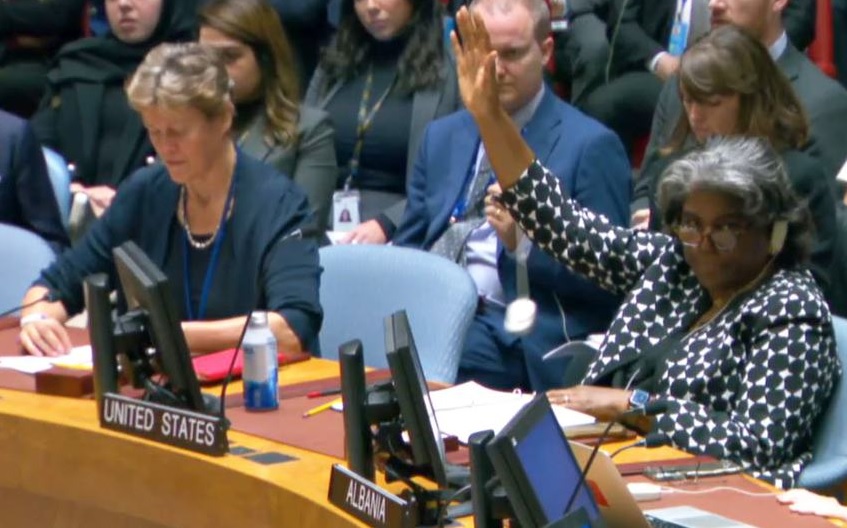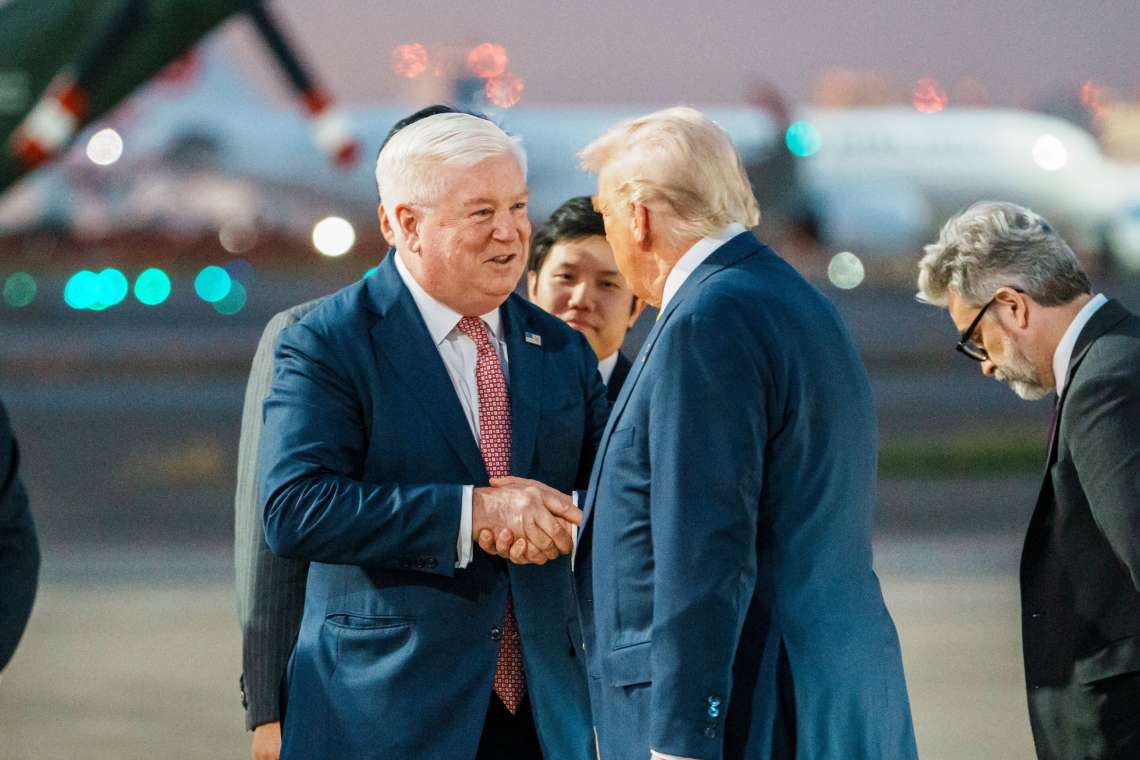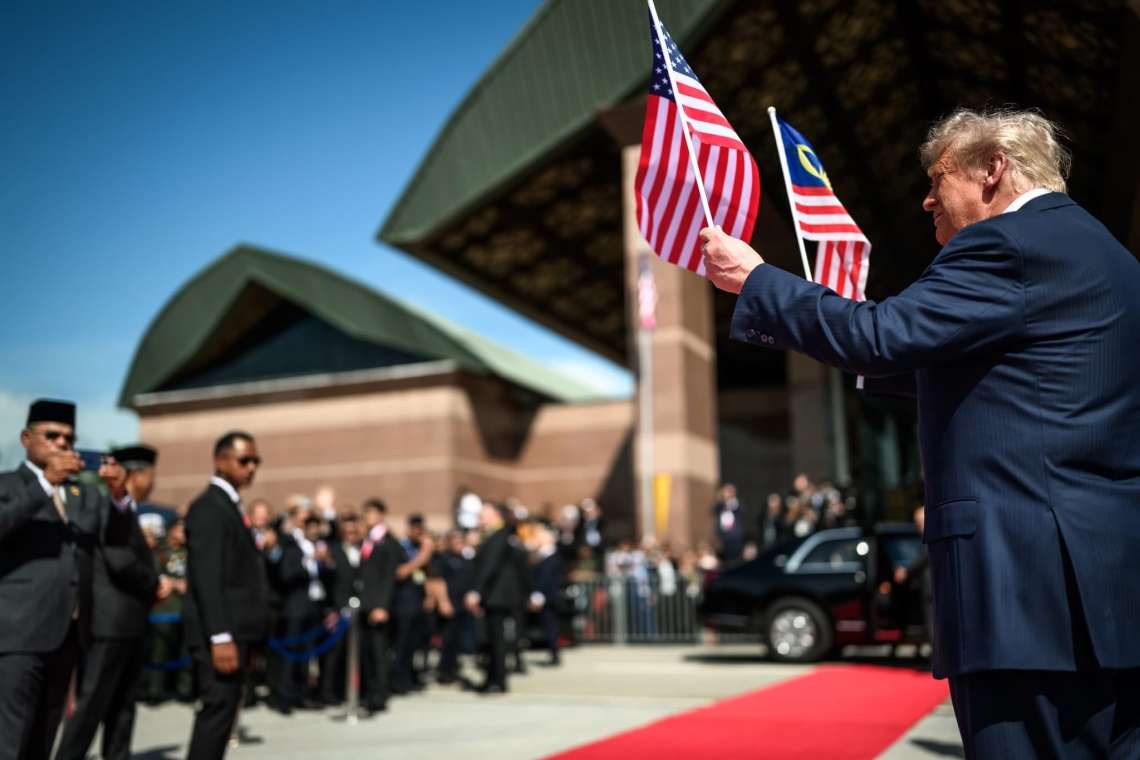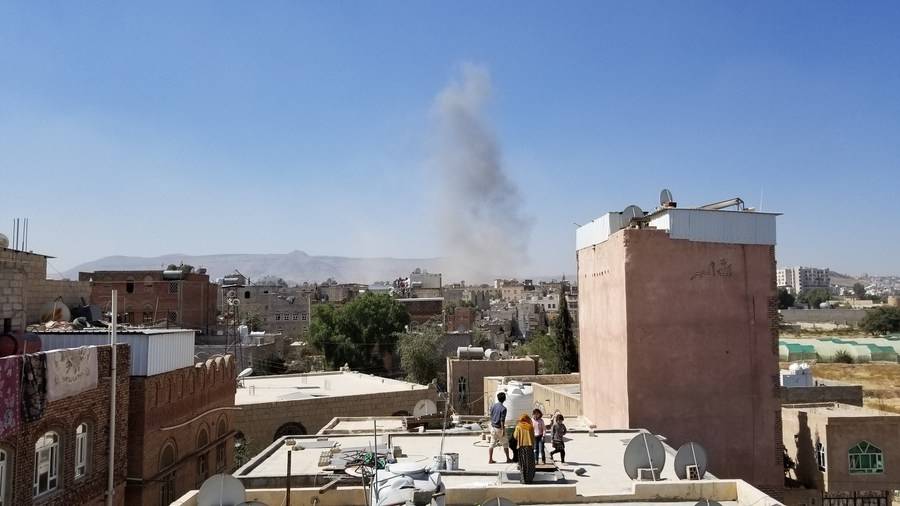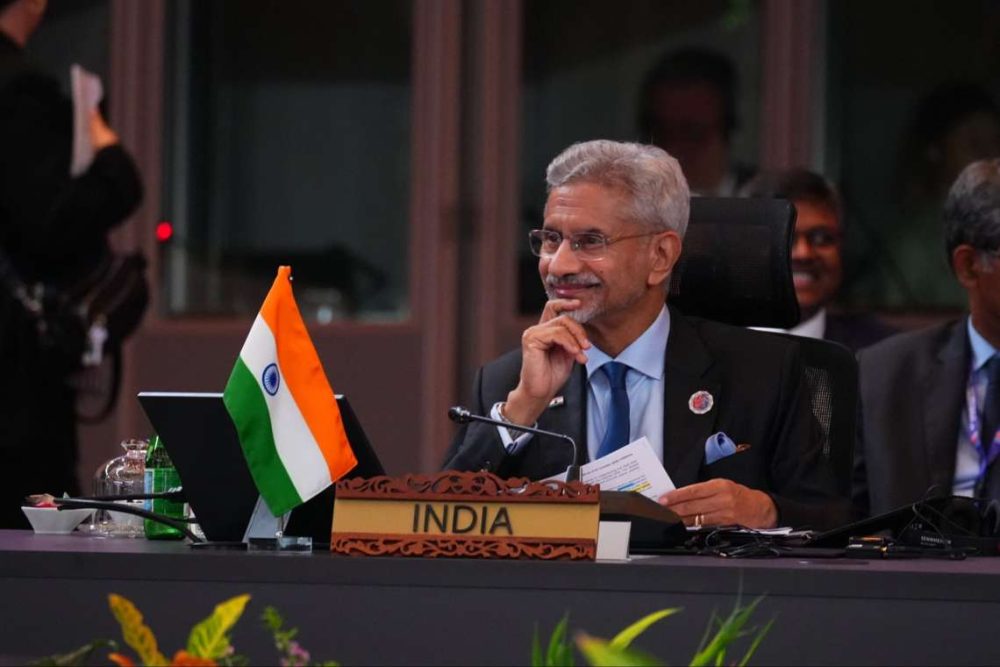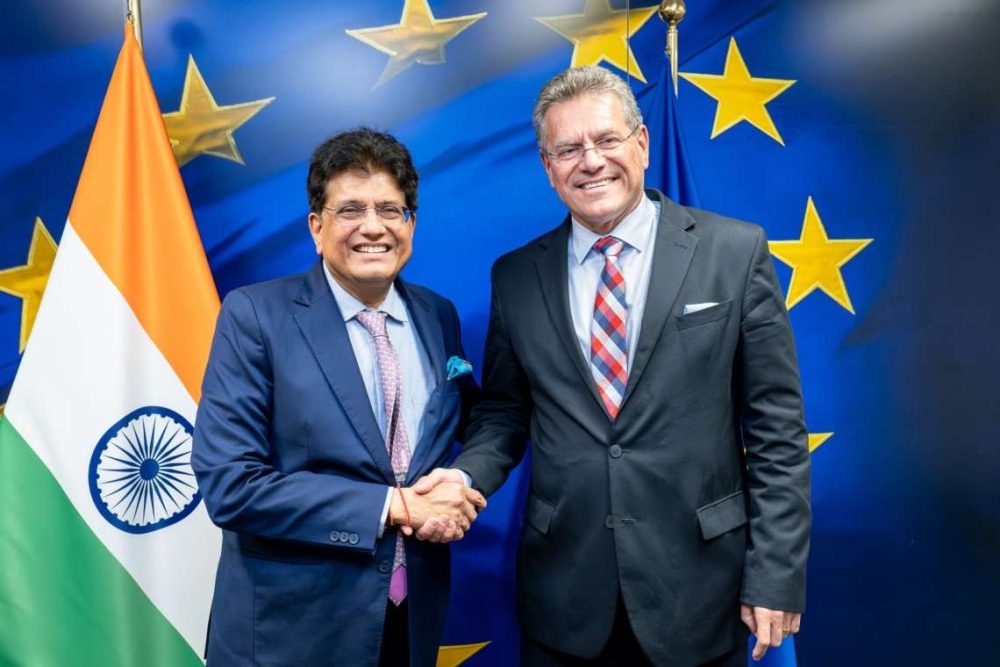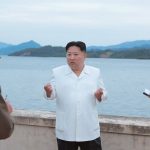The US was isolated in the Council where the resolution proposed by Alegria on behalf of Arab nations received 13 votes with the UK abstaining in the 15-member Council….reports Arul Louis
With an Israeli attack looming on Rafah, where more than a million Palestinians are huddling, the US on Tuesday vetoed a Security Council opposing “forced displacement” of civilians and calling for an immediate humanitarian ceasefire in Gaza.
The US was isolated in the Council where the resolution proposed by Alegria on behalf of Arab nations received 13 votes with the UK abstaining in the 15-member Council.
|Explaining the veto, US Permanent Representative Linda Thomas-Greenfield said that the resolution would hinder the negotiations taking place with the involvement also of Qatar and Egypt to release the hostages held in Gaza and for a ceasefire to facilitate it and the sending of humanitarian assistance there.
She said that Washington would offer an alternate resolution.
This was the sixth resolution on Gaza to suffer vetoes by the US, Britain, Russia or China.
Only two, calling for the provision of humanitarian aid have been adopted.
Algeria’s Permanent Representative Amar Bendjama said that a vote against his resolution “implies an endorsement of the brutal violence and collective punishment inflicted against them”.
“Today, every Palestinian is a target for death, extermination and genocide. Each one of us decides on where to stand in this tragic chapter of history,” he said.
With Rafah threatened with an attack, the vetoed resolution opposed the “forced displacement of the Palestinian civilian population in violation of international law”.
It included a generalised condemnation of attacks on civilians.
The resolution also made a reference to the World Court declaration last month ordering Israel to take steps to prevent a “genocide” in Gaza and to allow humanitarian assistance to the people there.
The institution, formally known as the International Court of Justice, is currently holding hearings on Israel’s occupation of Palestinian territories.
After three weeks of negotiations over its draft, the vetoed resolution also demanded the release of the hostages taken by Hamas in its terrorist attack from Gaza on Israel on October 7, which also killed about 1,200 people. After Israel launched a counterattack on Gaza in which 29,000 people, mostly women and children, were killed, and it ordered Palestinians there to move south to escape its onslaught.
Now, according to the UN, more than half of Gaza’s population of 2.3 million are sheltering in Rafah.
Israel’s Prime Minister Benjamin Netanyahu has announced that a military offensive on Rafah was imminent, which added a sense of urgency to the calls for the Council to act. This was foremost in the minds of even the Western countries.
Although Britain abstained, its Permanent Representative Barbara Woodward said: “We are particularly worried about the situation in Rafah, where a military operation could have appalling consequences for civilians sheltering there with nowhere else to go.”
Slovenia’s Permanent Representative Bostjan Malovrh said that if an attack on Rafah takes place, the world will awaken to a “nightmare”.
Israel’s Permanent Representative Gilad Erdan was unmoved and he told the Council: “The clock is ticking. We will be forced to take action” in Rafah. He said that a ceasefire would allow Hamas to regroup and mount attacks on Israel similar to the one in October in which civilians including children were killed and women raped.
It would, therefore, be “immoral” for the UN to facilitate Hamas regrouping.
Palestine’s Permanent Observer Riyad Mansour said that despite the US vetoes, Israel “cannot get away with murder” and would face a reckoning. The veto was “absolutely reckless and dangerous, again shielding Israel even after it commits the most shocking crimes while exposing millions of innocent Palestinian people to more untold horrors”, he said.
Qatar’s Permanent Representative Alya Ahmed bin Saif Al-Thani said that the Gulf Cooperation Council (GCC) regrets the veto. She said that the GCC supports the ongoing negotiations facilitated by Doha, Washington, and Cairo “around a framework agreement for a new humanitarian truce” that seeks free hostages, increase aid, and protect civilians in Gaza.
Russia’s Permanent Representative Vassily Nebenzia, who accused the US of allowing the massacre of Palestinians through its vetoes of Council resolutions, said that the veto was to give Israel to attack Rafah.
US President Joe Bide is under pressure from sections of his Democratic Party and others in the US over his administration’s support for Israel and has distanced itself from any attack on Rafah. He opposed an invasion of Rafah in a call to Netanyahu until it had plans in place to protect civilians. Thomas-Greenfield said that the alternate resolution it is proposing would make clear that “a major ground offensive into Rafah should not proceed”.
“Demanding an immediate, unconditional ceasefire without an agreement requiring Hamas to release the hostages, will not bring about a durable peace” and only extend the fighting.
Later speaking to reporters outside the Council chamber, she said that the US objection to Algeria’s resolution was that it did not directly tie a ceasefire to hostage release.
In a slight shift in position, the US appears to back a ceasefire, even if conditional. Instead of calling for a cessation of hostilities, as it has, the US draft resolution uses the world “ceasefire”, likely for the first time.
ALSO READ: Gaza, Ukraine loom large as key G20 meet


